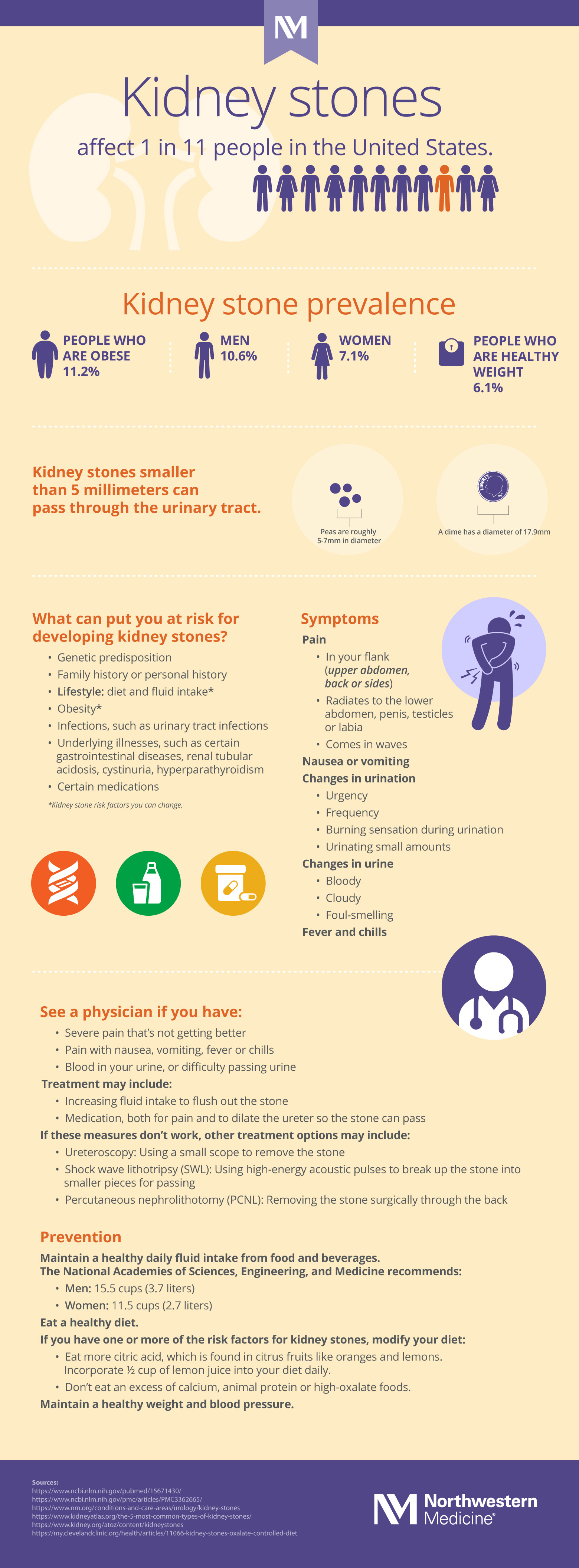Kidney Stones 101 (Infographic)
Updated March 2023
Sharpen Your Kidney Stone Knowledge
They’re the reason more than half a million people visit the emergency department each year. They’re small, hard mineral deposits that form in your kidneys and often affect your urinary tract.
“Patients can have a higher risk for kidney stones due to their diet or medical conditions,” says Katie L. Trinh, PA-C, a physician assistant in the urology department at Northwestern Medicine. “There are changes you can make in your diet to help prevent stones, such as increase your fluid intake and eat a healthy diet.”
Studies indicate a positive correlation between obesity, waist circumference and BMI, and development of kidney stones. Maintaining a healthy body weight, staying active and eating healthy can help reduce your risk.
Here’s what else you should know about these small — and painful — mineral deposits.
 Download Kidney Stones 101 (Infographic)
Download Kidney Stones 101 (Infographic)





